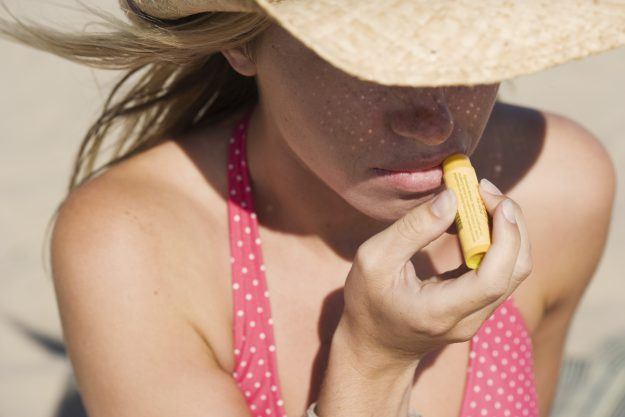Your favourite lip balms contain cancer-causing ingredients, according to new French study
mis à jour le 5 October 2017 à 15:34If you own any lip balms from these major brands, toss them immediately.

If you’re one to suffer from chapped lips and can’t survive without an hourly application of your favourite lip balm, you might want to strongly consider switching to natural or organic alternatives.
A breaking new study by leading French consumer group, UFC Que-choisir, surfaced the cancer-causing dangers of coating your lips with certain highly-raved lip balm brands.
Half of the 21 products tested by were found to contain potentially harmful carcinogenic ingredients. These include lip balms from large cosmetic brands like Garnier, La Roche Posay and Carmex - hugely popular labels that are also widely carried throughout Asia.
Others contained Mosh (‘mineral oil saturated hydrocarbons’), which if swallowed, can make its way into your lymph nodes and liver and inflame them.
And they don’t contain just traces of the substance either - in fact, according to the report, the level of Mosh in these lips are at “extremely undesirable” levels, particularly on account of their toxicity when ingested.
The Lip Balms to Avoid, According to the Study
- Macadamia lip balm from Yves Rocher
- Trésors de miel nourishing lip balm, Garnier Ultra Doux
- Original classic care, Labello
- Classic moisturising lip balm, Carmex
- Nultric transforming balm for dry lips, La Roche Posay
- Homéostick, Boiron
- Cold cream nourishing balm, Avène
- Nutrition balm for dry lips, Le petit Marseillais
- Hydrating lip balm, Aptonia
- Hydrating lip balm, Uriage
Interestingly enough, the safest, most effective and hydrating lip balm in the study was also found to be the cheapest - the Lidl's "Cien" brand lip balm - illustrating that the staggering price difference between drugstore and high-end balms does not necessarily translate to results.
It is slightly alarming to note how many recent studies have surfaced toxic ingredients in seemingly harmless everyday products, from makeup, skin care to body and hair products.
Perhaps the bigger lesson here is to be smart about our purchases as consumers, do our due research on the ingredients used and strongly consider switching to natural or organic alternatives.
Sarah Khan
Photo: Getty Images
Read More:
Make the Switch: The 9 Baby products you should absolutely buy organic
UV Protection: 10 Best non-toxic sunscreens for your skin
Nailed it: 10 Non-toxic nail polish alternatives to try



